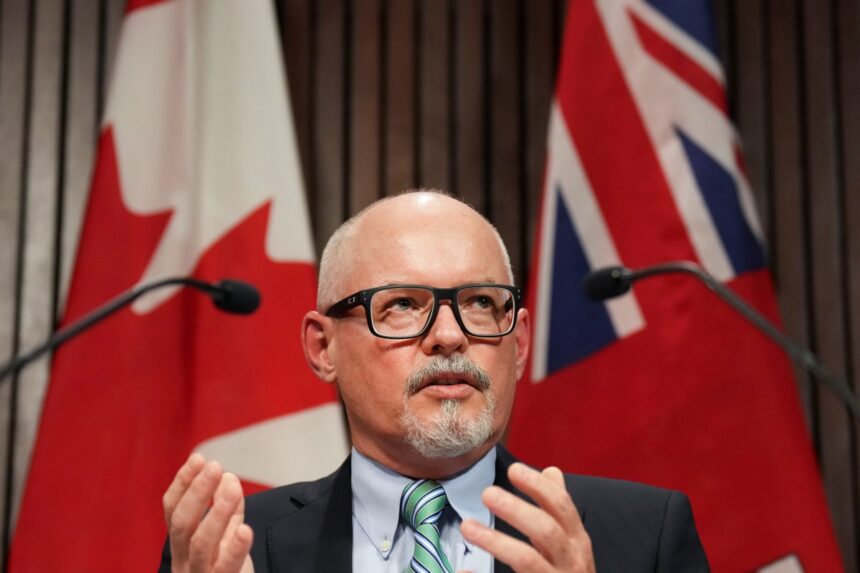In a stunning revelation that has sent shockwaves through regional health governance circles, Grey Bruce Health Board Chair Doug Cleverley claims Ontario’s Chief Medical Officer of Health instructed him to replace municipal board members—a directive that has now ironically led to his own potential removal from leadership.
The controversy erupted during Tuesday’s Grey-Bruce Board of Health meeting, where board members voted to hold a special session on April 23 to determine Cleverley’s fate as chair. This decision followed multiple municipalities expressing concerns about his leadership and communication style, culminating in a formal request from Grey County for his resignation.
“I was following the direction of the Chief Medical Officer of Health for Ontario,” Cleverley stated during the heated meeting. “He told me in the interview process to get rid of the municipal members because they were problematic.”
The Ministry of Health has yet to respond to requests for clarification on these allegations, which have intensified an already contentious situation within the regional health authority.
Grey County Warden Brian Milne, who presented the county’s motion requesting Cleverley’s resignation, emphasized that the chair’s approach has created significant governance issues. “The board chair has made unilateral decisions without proper consultation with the full board,” Milne noted. “This has undermined trust and collaborative decision-making essential to effective public health governance.”
The conflict appears to have roots in organizational changes implemented following amendments to the Health Protection and Promotion Act, which mandated a restructuring of health boards across Ontario. In Grey-Bruce, this process has been particularly turbulent, with multiple municipal representatives expressing frustration about their diminished role in health governance decisions.
Several board members voiced concern that Cleverley’s leadership style has created an atmosphere where open discussion is discouraged. Owen Sound Deputy Mayor Scott Greig described the situation as “dysfunctional,” noting that “effective governance requires transparency and respectful dialogue, both of which have been lacking.”
The controversy extends beyond personality conflicts to fundamental questions about local health governance. The provincial restructuring has shifted power dynamics, reducing municipal influence in health decisions that directly impact local communities. This transformation has raised questions about democratic accountability in public health decision-making across Ontario.
Financial implications also loom large in this dispute. Grey-Bruce municipalities contribute significant funding to public health services but claim they now have limited input into how these resources are allocated. Bruce County Warden Chris Peabody highlighted this concern, stating, “We provide substantial taxpayer dollars to support public health, yet our voice in governance has been systematically minimized.”
As the April 23 special meeting approaches, the outcome could have far-reaching implications for public health governance throughout the region. The board must determine whether Cleverley’s leadership approach aligns with the collaborative model necessary for effective public health administration.
This controversy raises a critical question for communities across Ontario: In our evolving public health system, how do we balance provincial oversight with meaningful local input to ensure health services remain responsive to community needs?










